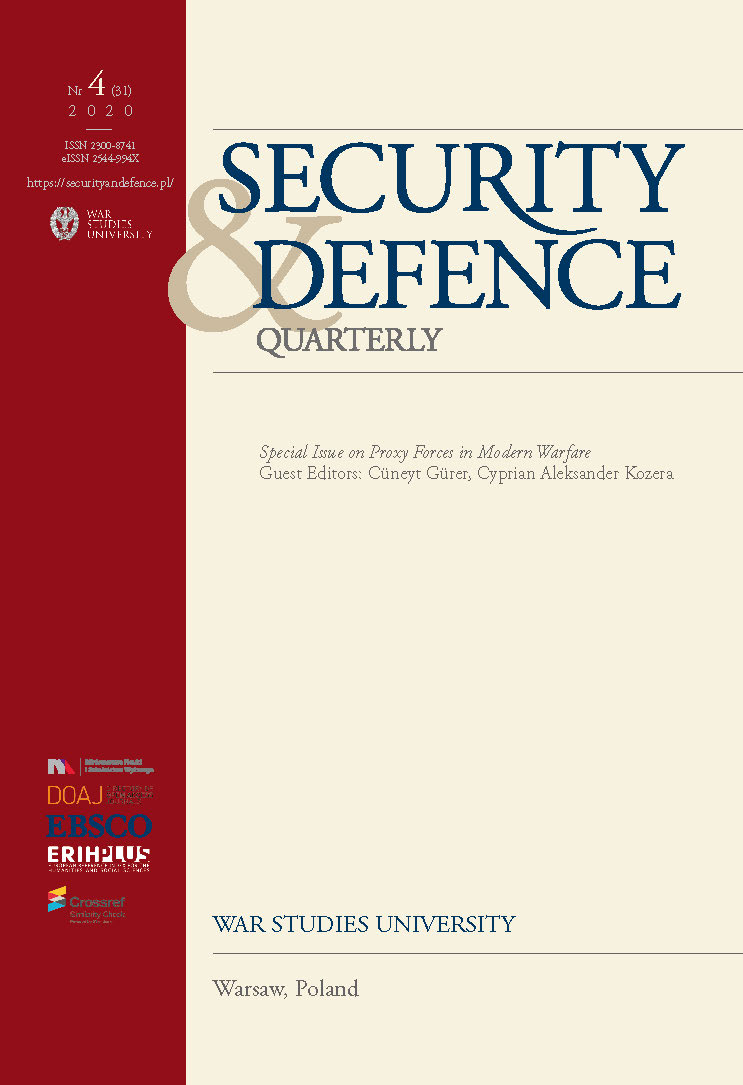Operational control over non-state proxies
Operational control over non-state proxies
Author(s): Filip BryjkaSubject(s): Security and defense, Military policy, Geopolitics
Published by: Akademia Sztuki Wojennej
Keywords: proxy war hybrid threats;surrogate forces;modern warfare;special operations
Summary/Abstract: The intention of this paper is to clarify how state patrons control non-state proxy forces fighting on their behalf. In order to address the subject matter thoroughly, specific attention was paid to a number of questions including a) the criteria determining patronproxy relations, b) factors influencing the selection process of proxy forces, and c) principles governing the maximisation of potential benefits of using proxies, whilst simultaneously reducing risks and associated costs. The author applied a neo-realistic research paradigm to his work. Patron-proxy relations were presented in the context of the principal-agent theory, as well as through detailed analysis of ongoing scenarios involving Iran and Hezbollah, Russia and the Donbass separatists, Pakistan and Kashmiri militias, the US and Syrian rebels. The essence of war by proxy is to influence the strategic result of an armed conflict without direct, full-scale, military intervention. The use of non-state proxy, external actors is aimed at maximising their political goals and strategic interests whilst maintaining “plausible deniability”. By supporting non-state proxies, indirectly or by providing limited direct assistance, sponsors operate below the threshold of war. Empirical analysis of proxy war cases proves that such models may both guarantee “strategic victory” or become a “double-edged sword”. One of the key challenges for external powers engaged in war by proxy is to avoid unintended consequences (blowback). The author argues that elements such as ideology, ethnicity or religion do not necessarily ensure control over proxies, whilst the range of common goals and interests, and the level of the proxy’s dependency, are crucial.
Journal: Security and Defence Quarterly
- Issue Year: 31/2020
- Issue No: 4
- Page Range: 191-210
- Page Count: 19
- Language: English

